Marie J. Elliot, author of My Little Outlier. A Mother’s Faith Journey understands this journey intimately. Through her personal experiences, she provides invaluable insights into parenting a child who doesn’t fit within traditional systems. If you’ve ever felt lost, overwhelmed, or unsure of how to support your child’s unique needs, know that you are not alone. This blog will explore key lessons from Marie’s journey and offer practical strategies for navigating parenthood with a neurodivergent child.
Understanding Neurodivergent Parenting
Neurodivergence refers to the natural variation in brain function that leads to differences in how individuals think, learn, and interact with the world. This includes conditions such as autism, ADHD, dyslexia, and sensory processing disorders. While society often views these differences as challenges, they also bring unique strengths and perspectives.
Unfortunately, traditional education and societal systems are not always designed to accommodate neurodivergent individuals. This can lead to frustration for both children and parents, making advocacy, education, and faith essential components of the parenting journey.
From Fear to Empowerment
Marie’s story is one that many parents can relate to. Despite her success in her professional life, she initially felt like a failure as a parent when she realized her child was different. The challenges of navigating an educational system that wasn’t built for her child, coupled with the fear of an uncertain future, led to feelings of anxiety and depression.
However, everything changed when she chose to shift her mindset. Instead of seeing her child’s differences as obstacles, she began embracing them as strengths. Through faith, self-education, and unwavering advocacy, Marie transformed her fear into empowerment, allowing her child to thrive in ways she never imagined.
Key Lessons from My Little Outlier
Marie’s journey offers essential lessons for parents facing similar challenges. Here are some key takeaways:
- Acceptance and Embracing the Journey: One of the biggest challenges for parents is moving past the initial fear and grief that can come with learning their child is different. The journey begins with accepting and embracing your child for who they are. Every child is unique, and their path may not look like others but that doesn’t make it any less valuable.
- Becoming Your Child’s Advocate: No one will fight for your child’s needs more than you. Advocacy is crucial in ensuring that your child receives the support, accommodations, and understanding they deserve. This might mean working with schools to create individualized education plans (IEPs), seeking specialized therapies, or simply educating those around you about your child’s needs.
- Finding Strength in Faith and Community: Marie’s journey highlights the importance of faith not just in a religious sense but also in having faith in yourself and your child’s future. Surrounding yourself with a supportive community of other parents, professionals, and mentors can make all the difference in navigating the challenges of raising a neurodivergent child.
- Prioritizing Mental Health for Both You and Your Child: Parenting can be overwhelming, and it’s easy to neglect self-care. But taking care of your mental health is just as important as taking care of your child’s. Seeking therapy, finding moments of rest, and leaning on supportive relationships can help you be the best version of yourself for your child.
- Redefining Success: Society has a narrow definition of success: good grades, prestigious careers, and social conformity. However, neurodivergent children often thrive in unconventional ways. Redefining success based on your child’s strengths, passions, and personal growth can lead to a more fulfilling journey for both you and your child.
Practical Strategies for Parenting a Neurodivergent Child
Marie’s experiences provide a roadmap for parents who are seeking guidance. Here are some actionable steps to support your child effectively:
- Educate Yourself: Understanding neurodivergence is the first step. Read books, attend workshops, and follow experts who share insights on supporting neurodivergent children.
- Advocate for Inclusive Education: Work with your child’s teachers to ensure they receive accommodations that cater to their learning style. Request IEPs or 504 plans if needed.
- Create a Safe and Nurturing Home Environment: Your home should be a place where your child feels accepted, loved, and understood. Implement routines, offer sensory-friendly spaces, and encourage open communication.
- Build a Support Network: Connect with other parents, join support groups, and find mentors who have experience navigating similar challenges.
- Celebrate Small Wins: Every milestone, no matter how small, is worth celebrating. Recognizing your child’s progress, whether it’s learning a new skill, making a friend, or expressing themselves, builds confidence and resilience.
- Take Care of Yourself: Parental burnout is real. Prioritize self-care, seek counseling if needed, and remember that asking for help is a sign of strength.
Why My Little Outlier is a Must-Read for Parents
Marie J. Elliot’s My Little Outlier is not just a book; it’s a lifeline for parents who feel alone in their journey. It offers practical advice, emotional support, and a reminder that hope is always within reach. If you’re struggling with feelings of uncertainty, this book will reassure you that there is a path forward, one filled with love, faith, and resilience.
Final Thoughts
Raising a neurodivergent child comes with its share of challenges, but it is also a journey filled with beauty, growth, and transformation. Marie’s story is proof that by shifting our perspective, advocating for our children, and leaning into faith and community, we can create a world where neurodivergent children are not just accommodated but celebrated.
If you’re a parent on this journey, you are not alone. There is hope, support, and a future filled with possibilities.





